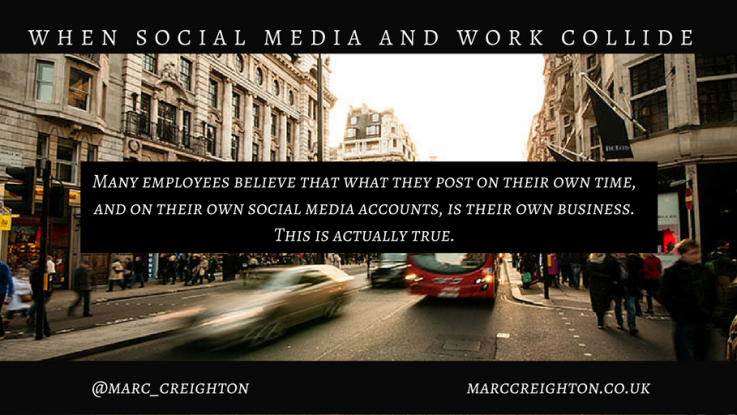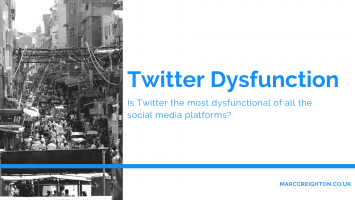
In the early days of social media, using these platforms while at your place of employment was widely frowned upon as wasted time. However, as social media platforms became more and more ingrained in both society and the business world, it has become an essential part of doing business, and many employers now encourage their employees to engage with the public through them. Social media and the work place can be awkward bed fellows, but they don’t have to be.
While this can be a positive for the firm, it also opens the door for potential problems, including damaging the company’s reputation through careless or derogatory posts. There is even the possibility that some posts could be against the law in certain areas or instances and bring legal troubles down on the business. Every company should adopt a comprehensive social media policy that covers the business if legal issues arise and offers employees guidance on what is allowed and what isn’t, whether during working hours or not, and it should do the following three things.
Set Clear Expectations with your Social Media Policy
The first place to start when drafting your company’s social media usage policy should be your HR department. The policy should cover every aspect of an employee’s responsibility to the enterprise. Once all the responsibilities are in place, it can be simplified and become more overarching.
The most crucial thing after ensuring that the policy is comprehensive is making sure that it is unambiguous. Any employee should be able to read the policy and understand what their responsibilities are without having to ask for an explanation on some part of it. Include what kind of content can or can’t be on social media posts, any management members (if any) who need to approve company posts, and rules for engaging (or not engaging) with the public in responses.
Protect the Brand Reputation
Other than avoiding legal problems, this should be the number one area to cover. Any damage done to the brand’s reputation is entirely contrary to the point of having a social media presence for the business. This can apply to negative posts about the company or other employees. It can also come into play in engaging with the public. What one employee may consider harmless, others may see as damaging. This is another point where clarity in the rules is vital.
Many employees believe that what they post on their own time, and their social media accounts, is their own business. This can be true unless they post something negative about their employer. Every employee has some essential obligations to their employer by virtue of their employment there. Among these obligations, are good faith, fidelity, and confidentiality. Posting negative comments that are derogatory about a company undermines these obligations. An employer in most cases is entitled to discipline the employee or terminate their employment.
Increase Employee Advocacy
Your social media policy should do the exact opposite of creating problems with staff. It should encourage social media in the workplace and allow them to become brand advocates. Setting clear guidelines for them can go a long way towards creating this environment.
Many companies create their social media policies as they go and react to situations that arise rather than being proactive. This reactionary approach can be devastating since the problematic instance has already happened and then addressed. Don’t open your company up to these types of problems. Create a sound policy up front and make sure that your employees are well versed in it. You will increase your online reputation and the probability of your staff becoming advocates.
Have you got a social media policy in your workplace? If not, why not? Drop me a line either in the comments or on Twitter.




Leave a Reply